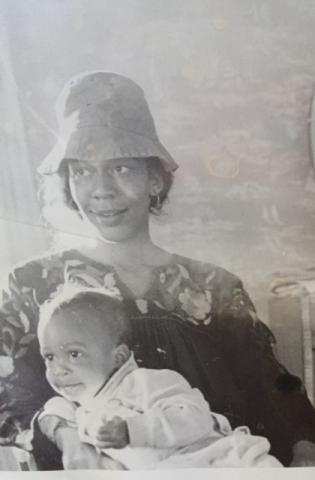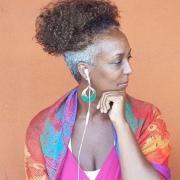
Breastfeeding America: What We Know
This piece is published in partnership with Echoing Ida, a Forward Together Program.
Current data indicates that black women have the lowest rates of breastfeeding in the US. There are many reasons for this, including lack of access to resources, substandard healthcare, personal choice and historical trauma. But what is not true however, are popular myths that black women do not know how to breastfeed, have not been exposed to breastfeeding or do not value it for our children.
As an African American health disparities professional who works to improve infant and maternal health outcomes, I know that the black experience in America is a harsh one that has compromised our relationship with breastfeeding. Our experience in America includes 365 years of slavery throughout the Americas, 354 years of legal slavery in the United States, 99 years of Jim Crow in the US, and 52 post-Civil-Rights-Act years of a prison industrial system that incarcerates African Americans at more than five times the rate of whites. Today, African Americans are: three times more likely to die of asthma, twice as likely as white Americans to experience the death of two or more family members by the age of 30, and at greater risk than any other ethnic group in this country of developing a chronic disease. Stress for African Americans is high and African American pre-term birth, infant mortality and maternal mortality rates are the highest in the country. However, amidst this trauma and resilience, when it comes to breastfeeding, here is what we know: Black women in America know how to breastfeed.
As enslaved women, alone, we helped to build the immune system of nearly 12 generations* of Americans with our milk. We breastfed without lactation consultants, boppys, public health statistics or social service instruction. We nursed our offspring when we could and other people's babies, oft times, at the expense of our own. We mastered the latch while sleeping on floors and working in fields, with broken hearts and bodies, in much harsher conditions than we live in now. Under these conditions, we helped to build the immune system of white America without pause or thanks because we were forced to. And we are still suffering from the consequences of that today.
When I look at black people’s present health outcomes I understand that they are based on structural inequities then and now, and directly linked to the ways that racism makes us sick. Breastmilk that we now consider good for babies and moms (it reduces risks of childhood obesity, childhood asthma, SIDS and ovarian and breast cancers) is milk that almost 12 generations of black women were forced to share with others at the expense of our own families. Black women have never not known how to nurse or care for our children, but we have experienced myriad structural barriers while doing so.
If breastfeeding today is complicated for many black women and families, and some indigenous and immigrant women and families of color too, it is likely because of trauma. It is because of substandard healthcare, distance from our families and traditions, the relentless promotion of formula, dreams of assimilation, the impact of stress on our milk supply and the cost of time- in a country that doesn’t afford most women opportunities to pump or breastfeed during working hours. Positive images and messages about breastfeeding have been undermined for years by being frowned upon by mainstream American culture. Without our mothers, sisters and communities to guide us, some of us struggle to access what our bodies know and, in many cases, are capable of. Death rates, incarceration, mental health challenges and many other social determinants of health in this country continue to compromise access to, and information sharing in, crucial female and familial relationships that could promote access to a slew of health inducing norms.
Still, breastfeeding in this country is coming full circle. From what we knew in the past: that it was good, cheap, available 24-hours a day, and made to build children's strength and immunity; to what we heard in the 1930’s-60's: that it was a time-waster, less sophisticated, inconvenient and inferior to evaporated milk and later formula; to what we know In the present-day: breastfeeding has superior health benefits to formula, reduces incidents of SIDS, and carries many benefits that can improve health outcomes. Outcomes to health conditions that disproportionately impact black lives.
As we promote breastfeeding as advocates, activists, feminists, public health leaders and people who care, we must remember—regardless of our race/ethnicity—to respect black women’s history. Black women’s knowledge of, and historical experience with breastfeeding (pre-colonial and otherwise) deserves a reverence that should be reflected in targeted outreach, consistent messaging and support to build sustainable breastfeeding. Black women helped build the immune system of almost 12 generations of Americans with our breast milk and traditionally nursed our children long before slavery and colonialism. We are America’s breastfeeding leaders, not her students nor charity cases. It is time to respect black women’s breastfeeding expertise and approach black women with an authentic and reverent knowledge of who black women are and always have been: capable, powerful leaders who deserve cultural competence, appreciation and full blown respect. Black women know how to breastfeed.
Sunshine Muse is a health disparities consultant in the field of maternal and infant health. She is shifting paradigms and experiences to help create a world where healthcare is more effective and history is not forgotten. She serves the NM Breastfeeding Taskforce and Centering Healthcare institute, and is a proud and courageous member of Echoing Ida, a black women's writers’ collective that walks in the footsteps of writer Ida B. Wells. To learn more about Ms. Muse’s work, visit sunnymuse.com or share a tweet via her new feed @growwhatweknow. #blackwomenknowhowtobreastfeed
Content Note:
the average generation in America is 25.5 years, however this calculation was shorter in the past, based on the average age that a women gave birth to their first child.
Author’s note: The terms black and African American are used interchangeably here. The term white does not refer to Hispanics or Latinos in this particular blog post. The author acknowledges, the complexities of ethnic and cultural self identification and ascribed identities.



The views and opinions expressed in this post are those of the author(s) and do not necessarily reflect those of MomsRising.org.
MomsRising.org strongly encourages our readers to post comments in response to blog posts. We value diversity of opinions and perspectives. Our goals for this space are to be educational, thought-provoking, and respectful. So we actively moderate comments and we reserve the right to edit or remove comments that undermine these goals. Thanks!